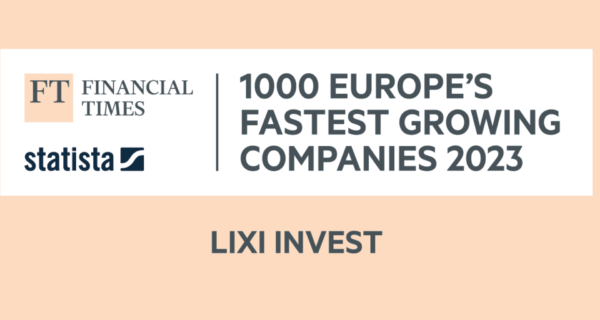In this article, I am going to talk about one of my favorite “leisure” reads, and by leisure reading I’m referring to “The battle for the soul of capitalism” by John Bogle, published by Yale University Press. As you can guess from the title, it discusses the big issues of modern-day capitalism (and what should be done to go back to a genuine notion of capitalism).

In my free webinar, I’ve been harping on about a key concept over and over.
A concept that you need to understand to get to the bottom of why you earn virtually nothing when investing via the traditional finance industry.
The summarized concept is as follows: the finance industry (the industry in which you get sold financial products, just so we’re clear) is totally biased toward the interests of those who SELL financial products, as opposed to the interests of those who BUY financial products.
With the consequences you can see for yourself in the webinar. And with the solutions that, just as well, you can find in the webinar.
Modern-day capitalism

In the book by John Bogle (the founder of Vanguard, whom I talked about in a different post), I gladly came upon this concept, even extended to include the entire economic system and not just the finance industry.
According to the great investor and entrepreneur, the whole of modern-day capitalism has shifted from an “entrepreneur-based” model (owner’s capitalism) to one that is “manager-based” (manager’s capitalism).
This is objectively a huge problem, as well as the root of a large share of current economic distortions.
The decisions on how to run a business (which, in the financial arena, also means making decisions on what and how to sell to savers and investors) are no longer taken by entrepreneurs, by business owners.
They are taken by managers, officials, intermediary figures.
“Skin in the Game”
The problem, simplified, summarized and captured to its core, is the following.
And I’m going to trace it back to the thinking of another of the minds who have gained a better understanding of today’s reality, i.e. Nassim Taleb.

The problem is that those who make decisions under uncertainty are NOT the ones who put in:
- Capital
- Risk
which means it’s NOT entrepreneurs, business owners.
Putting it the way I was taught in college, they are not the ones who “whip out the dough” and get the shaft where the sun don’t shine if things go wrong.
(Finally getting it now?)
Those who make the decisions are people who are simply getting paid, on account of their theoretical university studies and experiences.
But that’s not where the rub is.
The problem is that they don’t have “skin in the game.”

“No skin in the game” means that, in a battle, it’s not your skin that is at stake.
These middle management figures do not put their own money into the business, and even if their decisions turn out to be a disaster (if not downright fraudulent, we’ll talk about this next), they do not pay the piper accordingly.
These people, typically managers, are playing the safe game, in which:
- If things go well, and they manage to make their decisions look like winning choices, they stand to rake in millions in bonuses and stock options, on top of ego boosts from interviews, biographies, etc.
- If things go wrong, and cold, hard numbers have them stare down the reality of their completely botched decisions… well, that annual bonus simply goes out the window, pink slips may be in order in worst-case scenarios, but, armed with their far-reaching resume, they will be able to bounce back and wreak havoc somewhere else.
The problem is that them losing anything is not in the cards.
This lack of “skin in the game” gives rise to monsters. This lack of “skin in the game” leads to “moral hazard.”
It leads to an utter lack of accountability.
Why do banks go bust?
Let me give you an example, because these are actually extremely sophisticated and intellectually lofty topics, which really cut to the core of the meaning of economy, finance, and capital markets.
(No wonder Bogle’s book is called “The Battle for the Spirit of Capitalism”).

Just look at the Italian banks that went belly up in 2016, which from time to time get back in the spotlight because chances are they could have been saved with taxpayers’ money (that’s what taxpayers are in my book).
Why do banks go bust? Because the money they lent out did not make its way back.
And how come the money they lent out did not make its way back? Because it was loaned to the wrong people.
And who was it that loaned it to the wrong people?
It was managers, from higher-ups all the way down to lower level branch management, on the basis of creditworthiness assessment systems devised by… different managers.
And why did these managers drop the ball so miserably, lending an avalanche of money to people and businesses that failed to pay back a single dime?
Regardless of any loans granted to friends of friends and to a bunch of cousins, the reason they dropped the ball is this.
The managers made decisions about how and to whom lend money solely based on their potential personal gain, in terms of achievement of budget expectations, associated bonuses, and career prospects.
Managers’ moral hazard
This caused them to risk more and excessively, and to take on what is referred to as “moral hazard.“
In making your decisions:
A) If things go well, you make a shitload of money B) If things go wrong, you lose zilch
you can definitely see how your decision-making system is fully distorted by incentive-caused bias.
But, as always, the risk that these managers managed to wipe out for themselves (they did not lose a cent, and even those who get caught red-handed swindling money won’t go to the slammer that easily) was not fully wiped out after all.
The risk was simply transferred.
And riddle me this, whose shoulders do you think it was transferred onto?
Way to go.
It was passed on to the shoulders of savers and investors.
Who were in fact the only individuals who lost money, oftentimes their life savings.
This is the essence of a “top-down system,” which I explained in the webinar, namely:
- Investment fund managers come up with and launch products
- Bank managers go all out to flood the market with these products through financial advisors and bank employees
- Savers find products weighing on their shoulders (and sometimes even somewhat down south) that are inefficient and, above all, USELESS for achieving their financial goals

Questo sistema marcio e malato non si combatte invocando l’intervento della CONSOB, cambiando i questionari MiFID, chiedendo l’intervento pubblico in caso di casini, invocando la UE.
Nossignore.
System change
It is possible to oppose this system (for your personal protection, as well as to shore up your money) by shifting from a “top-down system” to a “bottom-up system,” which means:
- Savers and Investors devote time and attention toward mastering the basics of economics and finance, and toward setting up their own goal-based investment strategy.
- They zero in on a financial broker (better yet, an online bank) with which they can wrap up the purchase of the financial instruments needed to achieve their goals
- Brokers offer the most efficient products (ETFs), which are put together and constantly improved by asset management companies.
Which is what I’ve described in my free webinar:

If you can’t grasp this, and you do not implement it, the likelihood of you being able to make a few bucks in the markets in the coming years is equal to ZERO.
Au contraire, the likelihood of you losing money due to:
- The finance industry’s outrageous costs
- Inflation
- Potential frauds and scams (which do not occur often, but they do occur)
- Lack of a strategy and plan, which translates into letting yourself get constantly carried away by your ancestral instincts, hence swinging back and forth between extreme fear and excessive greed…
is basically close to 100%. It’s a sure thing.
You are going to lose money, take my word for it, here, right now. Write it down.
You put 100% of your money and, if shit hits the fan, you are going to be the only one losing money.
Here’s to your financial security and prosperity,
Luca










